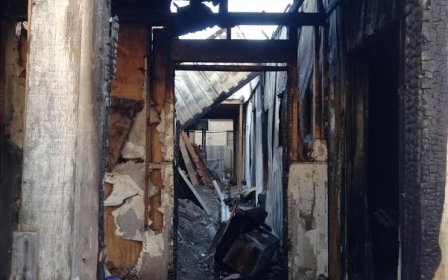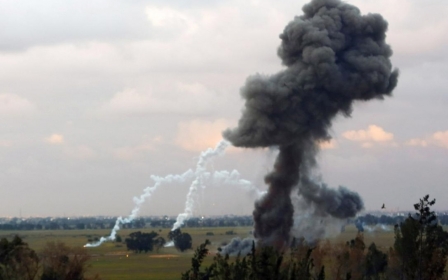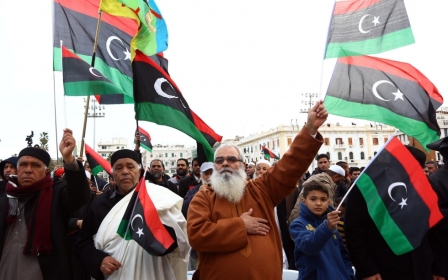Blast rocks Iranian Embassy in Tripoli as IS fears grow

Two bombs exploded outside the Iranian ambassador’s residence in Tripoli’s Ben Ashour district on Sunday.
One bomb went off outside the security gate and a second was lobbed into the grounds of the residence half an hour later, a spokesman for security services in Tripoli, Issam al-Naass, told AFP. Another security source added that no one was injured and that "the building was empty and the guard was not at his post at the time of the attack."
The blasts caused some minor structural damage, although journalists and emergency crews had begun to arrive at the site when the second smaller explosion took place, local daily Libya Herald reported.
Militants who claim loyalty to the Islamic State and have been behind a string of recent attacks later claimed responsibility for the attack.
The assault on the embassy was the latest to target a diplomatic mission in Tripoli, where most embassies have been shut since last summer when Libya Dawn militias took over the capital.
In January, Islamic State group claimed responsibility for an attack that targeted the empty Algerian embassy in Tripoli, wounding a security guard and two passers-by. The group also said it was behind a Saturday bombing at Libya's eastern airport Labraq, and a Friday bombing that reportedly killed 40 people in the eastern city of al-Qubbah.
Iran was one of the first foreign powers to pull their diplomatic staff out of Libya, shutting up shop in 2012 after unknown militants kidnapped seven Iranian aid workers in Benghazi.
According to the Libya Herald, anti-Iranian sentiment has been high in recent years, especially after Grand Mufti Sadek al-Ghariani – seen as the top religious authority in Libya – claimed in 2012 that Iranians were trying to convert Libyans into Shiites. No evidence has ever emerged to verify the claim but suspicions remain high in some circles, the paper added.
The North African nation is awash with weapons and has two rival governments and two parliaments, with authorities unable to rein in powerful militias battling for power and control of the nation's oil wealth. The Islamic State group, which opposes both Tripoli-based and Tobruk-based parliaments, has also been gaining ground, heightening concerns that other smaller militant groups have begun pledging their allegiance and joining forces with IS.
Last week, footage appeared of the militants executing 21 Egyptian Christians on a beach. The video promoted Egypt to bomb IS positions in Libya and to urge the UN to consider intervention – although a lack of international support for such a move quickly caused Egypt to backtrack with the UN currently torn about how best to proceed.
On Sunday, however, French Prime Minister Manuel Valls called for a unified response to the crisis.
Militants in Libya pose a "direct threat" to Europe, Valls said while addressing a gathering of European social democrats in Madrid.
"I would like to cite the question of Libya and the direct threat to our security of the creation - under our eyes and not far from our borders - of a new haven for the jihadi terrorist," Valls said.
His comments came a day after reports emerged that IS could be trying to seize Libya’s stockpiles of chemical weapons.
An unnamed Libyan military official told Asharq Al-Awsat, on Saturday that IS had managed to capture chemical weapons caches in southern and central Libya. The report could not be independently verified, but while Libya officially destroyed its chemical weapons reserves last year, analysts have warned that some stockpiles have remained.
Middle East Eye propose une couverture et une analyse indépendantes et incomparables du Moyen-Orient, de l’Afrique du Nord et d’autres régions du monde. Pour en savoir plus sur la reprise de ce contenu et les frais qui s’appliquent, veuillez remplir ce formulaire [en anglais]. Pour en savoir plus sur MEE, cliquez ici [en anglais].




